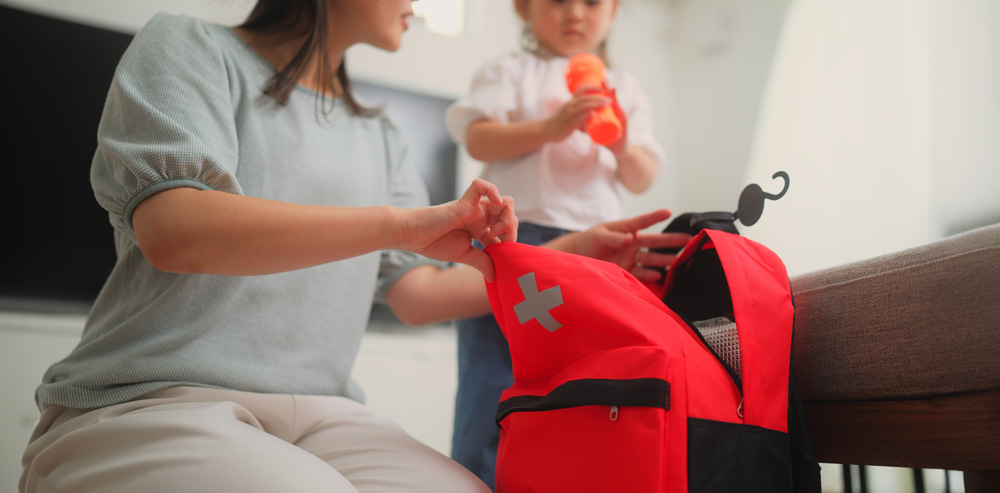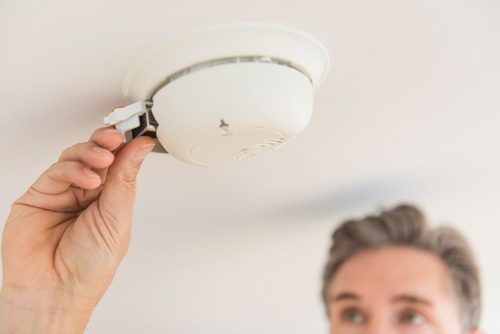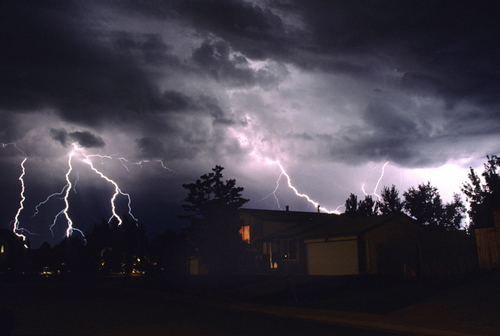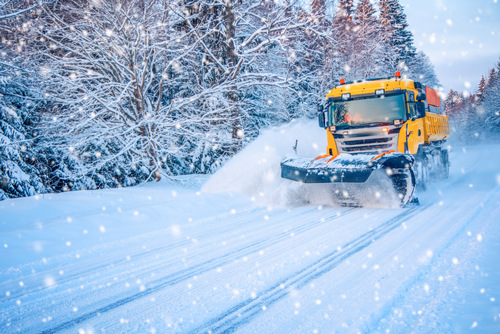Emergency Preparedness

Do you want to learn how to keep yourself and loved ones safe in case a natural disaster happens?
It is important to have the skills to handle an emergency. This is called “preparedness.”
No one expects an emergency to happen, but it is important to prepare your family, pets, and home for common emergencies and natural disasters. Keep reading below for helpful information on some common emergencies that can happen in our state.

It’s important to learn about fire safety to help prevent fires in your home. If a fire does start in your home, you need to be able to get out quickly and safely. After you’re safely out of the house, make sure to stay out.
Installing smoke alarms in bedrooms and on each floor of your home will help you know quickly if there’s fire or smoke in your house. The Red Cross recommends testing smoke alarms at least once a month. If they’re not working properly, you’ll know right away and be able to swap out the batteries. With fire safety, it’s always a good idea to plan ahead by making a family fire escape plan. Once you have a fire escape plan drawn up, go over it twice a year so you’re familiar with and stick to the plan.
If a fire does happen in your home, make sure to get out, stay out, and call 911 for help immediately. Do not be tempted to go back inside to get anything. Instead, have the fire department assist you.
For more information, please visit the Red Cross website.
More help:

In New Hampshire, thunderstorms are bound to happen in the summer. Thunderstorms can be dangerous, especially when lightning and strong winds are involved. The harm from thunderstorms may include downed power lines, uprooted trees, and mobile homes being blown around. Often, the hard rainfall from these storms causes flooding. It’s also common for hail to cause damage or lightning strikes to start fires.
If you hear on your local weather station that a thunderstorm is about to hit, make sure to stay indoors, either in a basement or an inside room of your home with no windows. The lowest level of a building is often the best protection from strong winds. Do not go outdoors during a thunderstorm. Stay inside until the storm is over. To be ready for a storm, it’s a good idea to go over drills with your family so everyone knows where to hunker down.
If there are unsecured objects in your yard, front porch, or deck, bring them indoors or make sure to tie them down. Items such as gas grills and propane tanks are especially important to secure. Make it a routine to trim dead branches or remove trees that could fall on your home in a storm. It’s also recommended to regularly clean out gutters, drains, and downspouts to prevent storm damage.
For more information, please visit the Red Cross website.
More help:

Floods may sometimes occur in your area. Flooding is a temporary overflow of water onto land that is normally dry. It’s important to leave the area before a flood starts. It is not safe to enter flood waters. In addition to the danger floods pose to people, they also can cause power outages and landslides and damage buildings, roads, and bridges.
Before a flood occurs, learn about the risk of floods in your area. If your home or community is prone to floods, you can get prepared. Your local office of emergency management can be a great resource to learn more about your flood risk. Flash floods can happen suddenly and quickly get out of control. You may not a have a lot of time to prepare or react to a flash flood. If a flash flood occurs near you, move to higher ground immediately.
For more information, please visit the Red Cross website.
More help:

New Hampshire gets strong winter storms that can bring chilling temperatures, heavy winds, ice, sleet, and large amounts of snow that pile up quickly. During a snowstorm, it can become more dangerous to drive. Snow and ice are on roads and there is low visibility. Often, heat, power, and cell service can be lost.
The most important thing to do during a snowstorm is to stay warm. Make sure to heat your home and check on neighbors, friends, and family members. It’s important not to travel during a storm unless you truly have to. If you go outside to shovel, make sure to wear a jacket, gloves, hat, scarf, and boots to stay warm so you do not get frostbite or hypothermia. If you lose electricity or your home gets too cold, go to a friend’s house, a public library, or a local warming center.
If you hear from your local weather station that a winter storm is in your area, make sure to stock up on food, water, and any medicines you take. Gather warm clothes for your family. If a storm is severe, you may not have access to drinking water. The Red Cross says it’s a good idea to have at least one gallon of drinking water per person per day on hand. Cleaning your driveway and walkways to your home is important for safety. Keep ice melt products and shovels on hand. With wind, snow, and ice during a snowstorm weighing on power lines, be prepared for your electricity to go out. You may also have to live without gas and water for a period of time.
For more information, please visit the Red Cross website.
More help:
AmeriHealth Caritas New Hampshire members who need emergency medical care should call 911.
